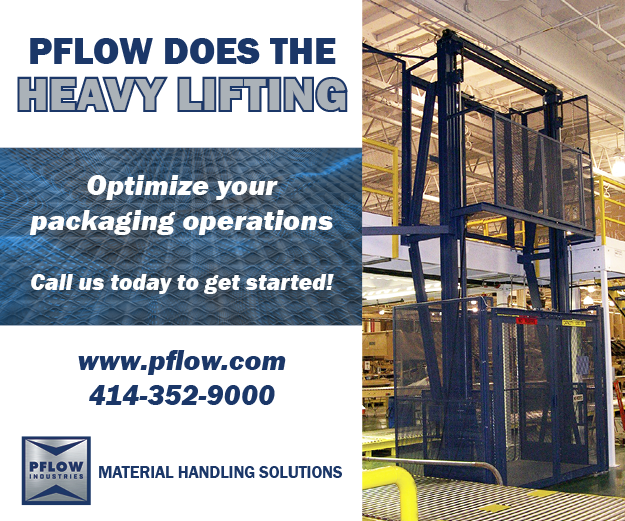Disrupting the Status Quo with Compostable Packaging
Merging regenerative agriculture with modern techniques revolutionizes sustainable packaging technology.
By Savannah Seydel, Vice President of Sustainability for Better Earth
The food service industry faces a stark reality: its linear, take-make-dispose model is unsustainable. From soil degradation to plastic pollution, the consequences of the status quo continue to be felt across our planet and with our health. In today’s fast-paced world, the urgency of this situation cannot be overstated, with the United Nations warning that there are only 60 harvests left worldwide if current degradation rates persist.
But despite these challenges, a wave of innovation is helping the foodservice industry rethink the way of doing things, driven by the powerful combination of regenerative agriculture and manufacturing innovations. This convergence is revolutionizing food service packaging to help catalyze a regenerative circular economy.
Compostable Packaging is a Catalyst
-
Soil Depletion: Current agricultural practices threaten our very food foundation. The UN warns of just 60 harvests left at current degradation rates, highlighting the need for regenerative solutions.
-
The Plastic Problem: Petroleum-based plastic is a material so persistent and pervasive, we’re choking on it. The environmental burden of the plastic supply chain, and the microplastics they break down into, demand immediate action.
-
Technology Breeds Efficiency: Molded fiber technology has far exceeded its humble beginnings as the egg carton. Robotics and innovative packaging manufacturing techniques allow for the creation of diverse, high-performance packaging from natural fibers. This opens doors to a wide variety of shapes and sizes in compostable packaging, all tailored to specific foodservice needs.
-
Closing the Loop: By integrating composting into operations, food service-related businesses can seamlessly transform their packaging and food waste into a valuable soil amendment that will further enrich depleted agricultural land.
Restaurants and the broader foodservice industry, as integral players in the food supply chain, have a unique opportunity to create an outsized impact by embracing regenerative, circular practices, starting with packaging.
Conventional plastic containers pose health and environmental risks and economic inefficiencies. Microplastic contamination and the carcinogenic nature of materials like expanded polystyrene underscore the urgency for change. In fact, the World Health Organization elevated the status of styrene in 2018 from “possible” to “probable carcinogen.”
Enter certified compostable packaging, a circular alternative leveraging rapidly renewable, natural materials and upcycled waste from other agricultural industries, like sugarcane bagasse. The next generation of compostable packaging goes a step beyond to utilize regenerative substrates like native perennial grasses, seaweed and mycelium that follow regenerative agricultural methodologies to naturally sequester carbon, replenish the soil and nurture local economies.
These materials ultimately comprise commercially compostable containers, utensils, and other products that are third-party certified to break down in a commercial composting operation alongside food waste and other organic materials. Moreover, these are the solutions consumers crave. Consumer perception favors sustainable packaging, which in turn further enhances brand value and loyalty.
Beyond Sustainability: Building thriving businesses
Through reduced tillage, cover cropping and crop rotation, among other methods, regenerative agriculture focuses on working with nature rather than against it, promoting resilience, sustainability and long-term productivity. This is a philosophy that can be applied across foodservice operations, with the potential to dramatically impact our environment, communities and bottom line.
Rather than simply “doing less harm,” regenerative, circular businesses seek to replenish and transform. Within the foodservice industry, it looks like this:
- building connections across one’s value chain,
- prioritizing food and packaging vendors actively integrating regenerative practices,
- leaning into durable food service-ware whenever possible,
- and as needed, utilizing compostable packaging that enables frictionless composting of all organic waste across the operation, thereby closing the cycle.
This shift strengthens relationships between food producers, distributors, and consumers, forging a resilient ecosystem that traditional single-use products cannot replicate.
The time for action is now
The food service industry is in a unique moment of opportunity, where it can collectively precipitate a transformative shift towards a circular economy that can have a ripple effect across other industries seeking more sustainable solutions for their packaging and business. By embracing regenerative fibers and advanced molding technologies, restaurants and other food service businesses can take the first step towards realizing an innovative future that ensures the health of our planet and the prosperity of our food systems for generations to come.
About the Author
Savannah Seydel is an environmental advocate and Vice President of Sustainability for Better Earth, a 100% compostable foodservice packaging company on a mission to make sustainability accessible and regenerative circularity achievable across the foodservice industry.






